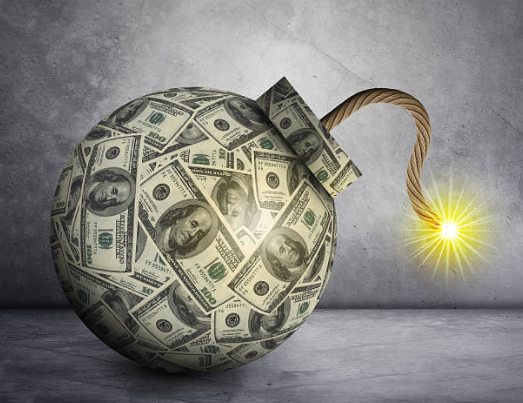Iraq to ban dollar cash withdrawals to avert US sanctions.
As part of a significant policy shift to reduce financial crimes and get around US sanctions on Iran, Iraq will forbid cash withdrawals and transactions in US dollars starting on January 1, 2024, a senior official from the Iraqi central bank announced.
According to Mazen Ahmed, director-general of investments and remittances at the Iraqi Central Bank (CBI), this action is intended to prevent the use of roughly 50% of the $10 billion in cash that Iraq imports from the New York Federal Reserve each year for illicit purposes.
This action will also help with broader initiatives to lessen the economy’s reliance on the US dollar, which has been favored over local money since the 2003 US invasion due to the instability in the area.
Notably, people who make dollar deposits into banks before the end of 2023 will still be able to make dollar withdrawals in 2024.
The only way to withdraw money deposited in 2024 will be in local currency at the official exchange rate of 1,320 Iraqi dinars for every dollar.
Also read: What we need to understand about de-dollarization
This rate is considerably less than the rate on the black market, which is currently 1,560 dinars per dollar, or about 15% less.
Ahmed emphasized that although cash dollar withdrawals will eventually end, people can still make electronic transactions in dollars inside of Iraq at the official exchange rate.
The central bank made it clear in a statement that accounts receiving transfers from abroad would be the only ones for which withdrawals of dollars in cash would be prohibited.
As Iraq to ban dollar cash withdrawals to avert US sanctions, in collaboration with US authorities, Iraq has already set up a system to control wire transfers, which has been successful in preventing fraudulent transactions that benefited Iran and Syria, two nations under US sanctions.
However, the problem of a rising parallel market exchange rate and a lack of dollars still exists.
Due to rising demand, many local banks have already restricted dollar cash withdrawals and the CBI has decreased its dollar supply as part of a larger transition to electronic payments.
Ahmed thinks that while the dinar may continue to lose value as these reforms take hold, they are an essential step in formalizing the financial system and reducing illicit trade.
He emphasized that the parallel market rate is less significant as long as transparent and lawful financing operations take place at the official exchange rate.
Given these adjustments, it is still unclear how Iraq’s financial stability and relations with both the United States and Iran will be impacted by the country’s move away from the dollar.
